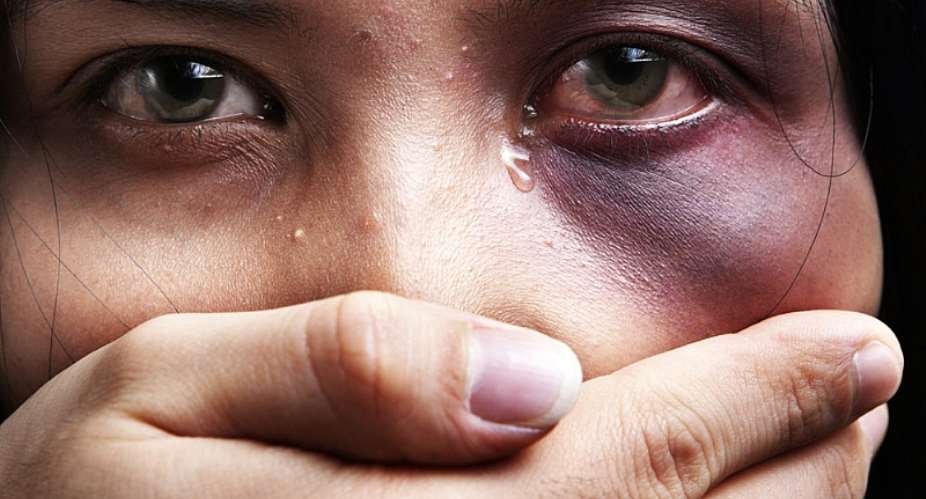Violence against women and girls is one of the most systematic and widespread human rights violations. It is rooted in gendered social structures rather than individual and random acts; it cuts across age, socio-economic, educational and geographic boundaries; affects all societies; and is a major obstacle to ending gender inequality and discrimination globally. Its impact ranges from multiple physical, sexual and mental consequences for women and girls, including death.
Sexual violence is a health problem sapping women’s energy, compromising their physical health and self-esteem. A lot of harmful behaviours are directed at women and girls because of sex, including married abuse of wife, assault, marital rape, and dowry related murder, forced prostitution, female genital mutilation among others.
Violence against women results in protracted long term health related diseases such as chronic pain, disability, depression, and risk for unwanted pregnancy, sexually transmitted diseases (STDs), and serious pregnancy related complications among others. Women who are beaten by their partners are 48% more likely to be infected with HIV/AIDS. These has tremendous effects on legal expenses and losses in productivity, impacting national budgets and overall development.
Many factors account for the increase of likelihood of abuse by a man against his wife or partner. Sexual violence happens in every part of the world, a wide range of sexual violence takes place in different circumstances and setting. Many of those who abuse their partners happened to be brought up in broken homes.
Violence against women in Ghana has to be addressed in the historical and cultural context of both household and gender power relation and poverty. Traditionally, patriarchal domination has been the norm and men have been recognized as having the right to chastise their wives. Sadly, females’ members of household are mostly subjected to male domination and these affect gender equality and the development of women in societies.
There are unprecedented number of countries that has enacted laws against domestic violence, sexual assault and other forms of violence. Women’s rights to live free from violence is upheld by international agreements such as the Convention on the Elimination of All Forms of Discrimination against Women (CEDAW) especially through General Recommendations 12 and 19, and the 1993 UN Declaration on the Elimination of Violence against Women.
Challenges remain however in implementing these laws, limiting women and girls’ access to safety and justice. Not enough is done to prevent violence, and when it does occur, it often goes unpunished.
The author of this article is Janet Bediako, UDS L400 student, President of Cyan-Gh Real Ladies Club.





 Lay KPMG audit report on SML-GRA contract before Parliament – Isaac Adongo tells...
Lay KPMG audit report on SML-GRA contract before Parliament – Isaac Adongo tells...
 Supervisor remanded for stabbing businessman with broken bottle and screwdriver
Supervisor remanded for stabbing businessman with broken bottle and screwdriver
 NDC watching EC and NPP closely on Returning Officer recruitment — Omane Boamah
NDC watching EC and NPP closely on Returning Officer recruitment — Omane Boamah
 Your decision to contest for president again is pathetic – Annoh-Dompreh blasts ...
Your decision to contest for president again is pathetic – Annoh-Dompreh blasts ...
 Election 2024: Security agencies ready to keep peace and secure the country — IG...
Election 2024: Security agencies ready to keep peace and secure the country — IG...
 People no longer place value in public basic schools; new uniforms, painting wil...
People no longer place value in public basic schools; new uniforms, painting wil...
 'Comedian' Paul Adom Otchere needs help – Sulemana Braimah
'Comedian' Paul Adom Otchere needs help – Sulemana Braimah
 Ejisu by-election: Only 33% of voters can be swayed by inducement — Global InfoA...
Ejisu by-election: Only 33% of voters can be swayed by inducement — Global InfoA...
 Minority will expose the beneficial owners of SML, recover funds paid to company...
Minority will expose the beneficial owners of SML, recover funds paid to company...
 Prof. Opoku-Agyemang has ‘decapitated’ the NPP’s strategies; don’t take them ser...
Prof. Opoku-Agyemang has ‘decapitated’ the NPP’s strategies; don’t take them ser...
